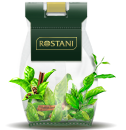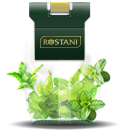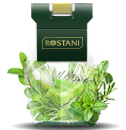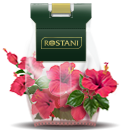WIKI
Are you interested by?

Thyme Benefits
In general, thyme is excellent at supporting the immune and respiratory systems as well as the digestive, nervous and other body systems. Check out some of the top ways this herb can help improve your health.
Fights Sore Throats
Thyme oil is one of the strongest, natural antimicrobials, making it a serious weapon against sore throats. Next time you have a sore throat, make sure to add this herb to your soup and have some soothing and germ-killing thyme tea!
Lowers Blood Pressure and Cholesterol Levels
The ingestion of thyme has been shown to produce antihypertensive activity, which makes it a great herbal choice for anyone suffering from high blood pressure symptoms. A recent animal study found that the extract was able to significantly reduce the heart rate of subjects with high blood pressure. The extract was also shown to reduce cholesterol, triglyceride and LDL levels while increasing HDL cholesterol levels. Instead of overdoing it on salt, try adding more beneficial herbs like thyme to your daily meals.
Prevents Food Poisoning
Thyme has the ability not only to prevent food contamination, but to decontaminate previously contaminated foods as well. In several studies published in Food Microbiology, researchers found that the herb’s essential oil was able to decontaminate lettuce inoculated with Shigella, an infectious organism that causes diarrhea and can lead to major intestinal damage. Washing produce in a solution containing just 1 percent of the oil decreased the number of Shigella bacteria below the point of detection.
By adding it to your next meal, you can actually decrease your likelihood of a food-borne illness. Try adding fresh thyme to your next homemade salad to make those raw greens even healthier and safer to consume!
Naturally Remedies Bronchitis
Thyme has been used for centuries for the treatment of coughs and bronchitis. A study conducted by the Practice for Internal Medicine and Pneumology in Germany used an oral treatment that was a combination of thyme and ivy. The group treated with this combination had a 50 percent reduction in coughing fits that was achieved two days earlier than the placebo group. In addition, the group treated with this combination had no more adverse events than the placebo group and no serious adverse events at all.
Further research confirms this and suggests this herb makes an effective bronchitis natural remedy as well.
Thyme to boost your mood
Thyme essential oil is often used for aromatic and therapeutic purposes because of its active substance carvacrol. In a 2013 study, carvacrol was shown to affect neuron activity in ways that boosted the subjects’ feelings of well-being.
So if you use thyme or thyme oil regularly, it might have a positive effect on your feelings and mood.
How to Use Thyme
This herb is easily and readily available both fresh and dried year-round. Fresh thyme is more flavorful, but it’s also less convenient. If you purchase it fresh, it can last a week or two in the refrigerator. Dried thyme should be stored in a cool, dark place and ideally used within six months.
The dried version can be substituted for the fresh kind in most recipes. One teaspoon of dried leaves is equivalent to one tablespoon of chopped fresh thyme.
This herb can be consumed in a variety of ways. The most common is as a fresh or dried herb in any culinary creation. For medicinal purposes, it can be purchased in the form of a tea.
When it comes to using it in your kitchen and daily life, dried or fresh thyme makes such a healthy and tasty addition to chicken, fish, beef, lamb, vegetables (especially green beans, eggplant, carrots and zucchini), cheese (especially goat cheese), pasta dishes, soups, stocks, sauces, dressings and marinades for starters. The options are really endless. If you like the taste, you can add it to just about any dish you like.
Thyme Precautions
Thyme is considered safe when consumed in normal food amounts. When taken in larger quantities for medicinal purposes, it’s possibly safe for short durations of time — however, it can possibly cause digestive issues when taken in large amounts.
For pregnant or nursing women, it’s best to consume this herb in normal food amounts, not medicinal quantities. It’s not a common food allergen, but if you’re allergic to oregano or other Lamiaceae species then you might also be allergic to thyme.
For women who have hormone-sensitive conditions like breast cancer, ovarian cancer, uterine cancer, uterine fibroids or endometriosis, it might act like estrogen in the body. Avoid it if you have any condition that might be made worse by exposure to estrogen.
When used in large amounts, this spice might possibly slow blood clotting, so be especially careful if you have any clotting disorders and/or are currently taking blood thinners. For the same reason, it’s best not to take it two weeks before surgery.
Resources:
draxe.com
healthline.com

 Echium
Echium
 Aromatic Green Tea
Aromatic Green Tea
 Mint Green Tea
Mint Green Tea
 Mint Mix
Mint Mix
 Hibiscus
Hibiscus
 Chamomile
Chamomile